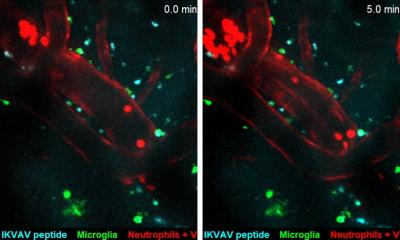Man develops hepatitis from consuming too many energy drinks
A 50-year-old man was admitted to the emergency department with hepatitis, most likely due to his intake of 4-5 energy drinks every day for three weeks, reveal doctors writing in the journal BMJ Case Reports.
After the man started consuming energy drinks, he developed malaise, anorexia and worsening abdominal pain, which progressed to nausea, and vomiting. He originally thought his symptoms were down to a flu-like syndrome. However, he became alarmed when he developed dark urine and generalized jaundice.
He didn't note any changes in his diet or use of alcohol, tobacco, or illicit drugs, apart from consuming energy drinks. As a construction worker, he used the energy drinks to help get through his labor-intensive workday.
Physical examination revealed jaundice and right upper abdominal tenderness. Lab tests revealed high levels of liver enzymes, called transaminases, indicating liver damage, and evidence of chronic hepatitis C infection. Liver biopsy showed severe hepatitis.
Doctors who treated the man explain that his development of hepatitis was likely due to excessive energy drink consumption, specifically vitamin B3 (niacin). His intake was around 160-200 mg daily, below the threshold expected to cause toxicity, but similar to a previously reported energy drink associated hepatitis (around 300 mg of niacin daily).
Toxicity is likely worsened by accumulative effect. Each bottle of his energy drink contained 40 mg of Niacin, or 200% of the recommended daily value. The patient was treated with close observation, frequent monitoring, and symptom management. He discontinued consumption of all energy drinks and he was advised to avoid any similar niacin-containing products in the future.
Around 50% of cases of liver failure in the US are due to drug induced liver injury, explain the doctors. The list of associated drugs and toxins has significantly grown as the market for dietary and herbal supplements continues to rapidly expand.
Estimates suggest approximately 23,000 emergency department visits each year are due to adverse events related to dietary supplements. "As the energy drink market continues to rapidly expand, consumers should be aware of the potential risks of their various ingredients. Vitamins and nutrients, such as niacin are present in quantities that greatly exceed the recommended daily intake, lending to their high risk for harmful accumulation and toxicity," they conclude.
Source: BMJ Case Reports
02.11.2016






